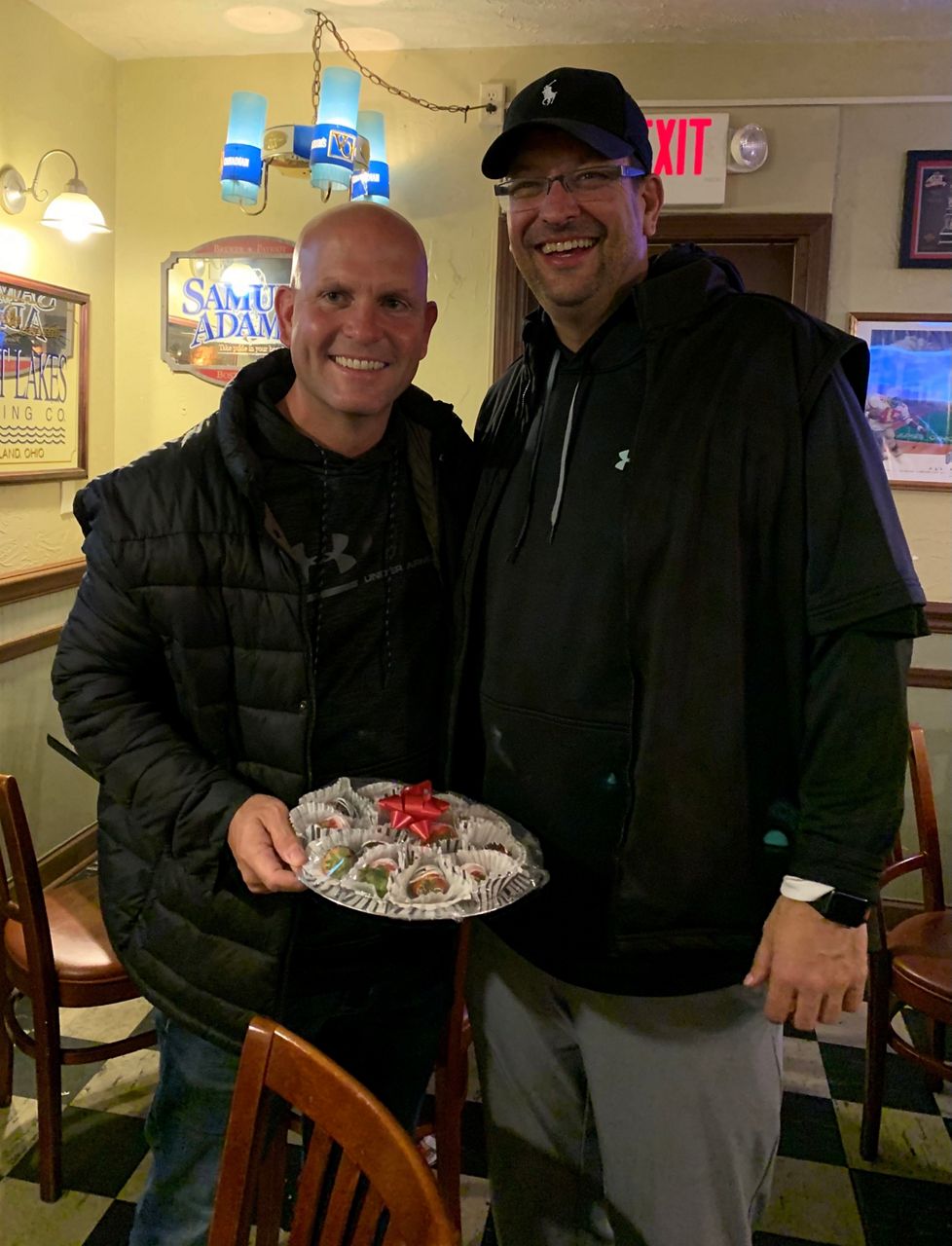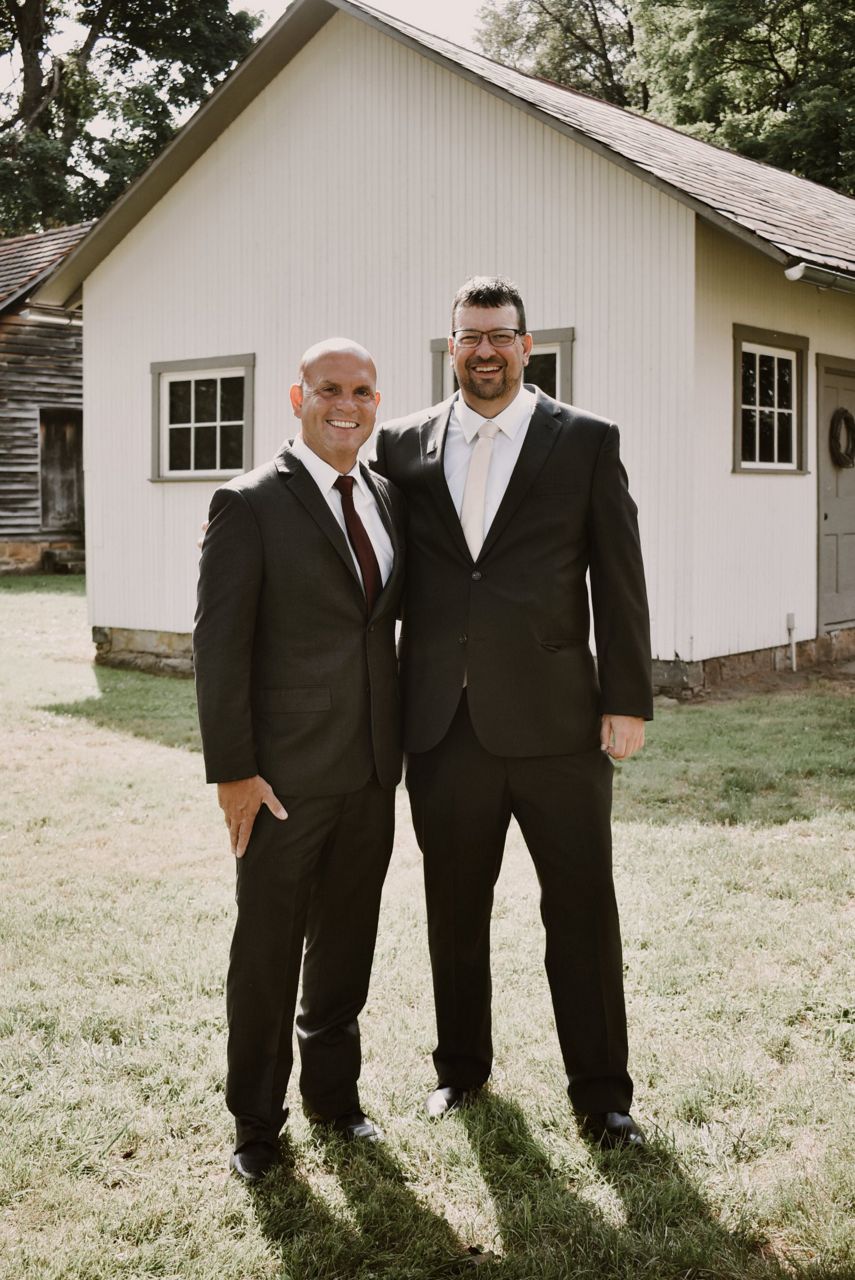CLEVELAND — Dave Tidrick and Todd Steele met just after a golf fundraiser in October 2019.
“He’s my caddy," Steele joked as they walked up to the course.
The fundraiser was for Tidrick, raising money for medical bills and raising awareness for a potential live liver donor.
“I thought, man. I sure hope somebody helps Dave out. But I wasn’t thinking about myself," said Tidrick.
Tidrick had advanced liver disease, suffering severe complications from cryptogenic cirrhosis of the liver.
“I became aware that Dave was in such a place where his liver wasn’t going to keep him alive much longer," said Steele.
As his condition worsened, Tidrick was placed on the United Network for Organ sharing list.
Time after time, he’d rush to the Cleveland Clinic for a possible donation, but it didnt work out. He was hopeful for a live donation. He needed a liver from someone with his blood type: B positive.
“Well, people just kept pounding into my head to be positive. So I just thought let’s all just be positive and blood type B so go looking," said Tidrick.
Steele's wife, Evie, and Tidrick’s then fiancée, Jenny, are friends from high school who had recently reconnected. Evie told him she was going to get tested to see if she could be Tidrick's donor. Steele and Tidrick hadn't met yet, but Steele decided to get tested too.
That was late summer. Fast forward a few months and a few dinners with Jenny and Evie.

“It was actually right around my birthday. My birthday is December 16th so that was one of the best birthday presents I could have received in my life," said Tidrick.
Steele isn't type B positive, but he is O negative, the universal donor. He was a match for Tidrick.
“Obviously joking, I asked Dave what he had going on for January 20th," said Steele.
“I said I’ve been waiting for a couple years, let’s do it. I think I’m open," said Tidrick.
Tidrick and Steele would undergo surgery in January 2020, saving Tidrick’s life. Months later, Steele would stand next to Tidrick on his wedding day, as friends.“Well, we’re brothers. There’s a lot of buddies in the world, and there’s a lot of brothers in the world, but sometimes there’s some things thicker than brothers," said Tidrick.
The Cleveland Clinic is one of just two hospitals in the country that performs a minimally-invasive, laparoscopic live liver transplant.
Steele said he now wants to make the point that you dont have to know someone who needs a liver to be a live liver donor, you can be an anonymous donor.

Dr. David Kwon, the Cleveland Clinic's director of laparoscopic liver surgery, says with a minimally invasive approach, the donor recovers more quickly, there's less pain and the complication rate is drastically lower.
“There are two things I hear from my donor patients. First, ‘I didn’t know there was anything like living donor liver transplant. I heard about living donor kidney transplant. I didn’t know that it was possible in a liver transplant.' So that’s one thing I would like the general population to know and secondly it’s like, ‘Yeah, I heard about living donor liver transplant but I never imagined this could be done laparoscopically’ because they’ve never heard of it and it’s natural that they’ve never heard of it because there are only two institutions in the U.S. doing it," said Kwon.
He says the Cleveland Clinic did 26 laparoscopic liver donations last year and they are hoping to perform at least 40 this year.



